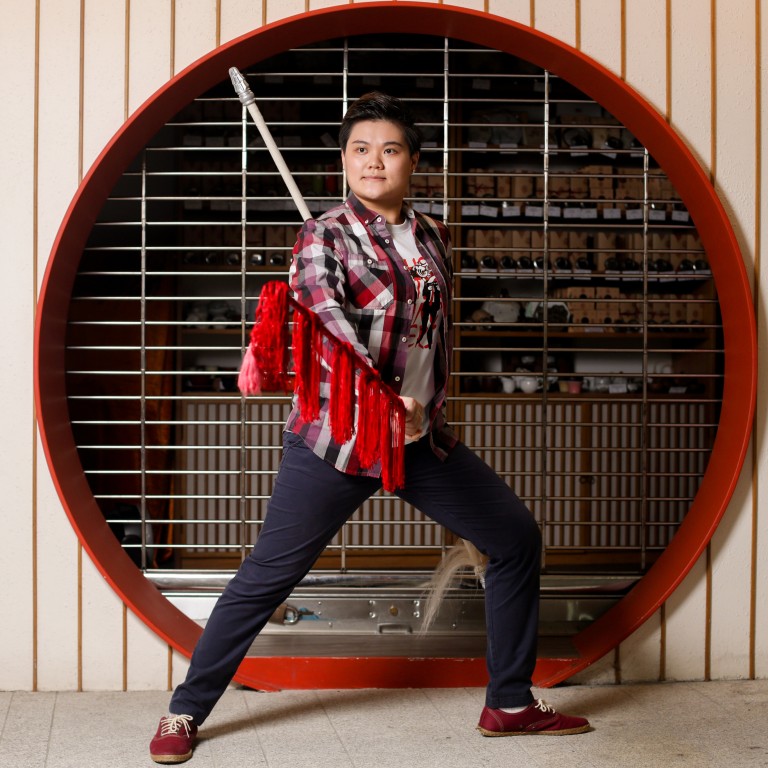
Operation Santa Claus: Cantonese opera performer aims to make traditional art form accessible to everyone
- Christie To’s troupe focused on the performance aspect of Cantonese opera during the workshop held in December 2021 in conjunction with Operation Santa Claus
- Cantonese opera has evolved with the times and there are a lot of elements in there that relate to modern life, she says
A Cantonese opera workshop for those with hearing disabilities has not only given Christie To Wing-sum a unique challenge, it has allowed her to reach out to Hong Kong residents previously cut off from the traditional art form.
To, 28, and the Hong Kong Young Talent Cantonese Opera Troupe hold about 10 workshops every year to encourage residents to experience and learn about Cantonese opera. However, the workshop in December 2021 with Operation Santa Claus (OSC) was the first time she worked with people with hearing disabilities.

OSC is an annual fundraising drive co-organised by the South China Morning Post and RTHK since 1988. Last year it supported 18 beneficiaries.
“I was worried that it’d be challenging, given how music and the ability to hear are important,” said To, adding that this was a good opportunity to let different people experience the traditional art form.
The team focused on physical action and the performance aspect of Cantonese opera for the workshop.
According to To, while music is a crucial part of Cantonese opera, much of the storytelling is told through action, cadence and rhythm of movement. The props and stage designs, as well as actors’ stage make-up and costumes, are also important aspects of the performance.
Hong Kong deaf parents experience world of Cantonese opera at workshop
To said that it was important to make the performing arts accessible so they could be enjoyed by those in marginalised communities.
“If you’re disabled, it shouldn’t mean you can’t take part in the arts,” she said.
To first came into contact with Cantonese opera through her mother, who would hum along to the tunes playing on the radio at home.
She started singing Cantonese opera at the age of four, and also performed with troupes throughout primary and secondary school.
“I was always involved in it,” she said.
Hong Kong NGO aims to boost education for children with hearing disabilities
While Cantonese opera could come across as being far removed from present-day life, it had evolved and changed with the times, such as the way stages and sets were built and how stories were modernised and updated, To said.
“There is a lot in there that relates to the modern person’s life, and we want to promote and show that off to others,” she said.
To’s troupe of 12 are mostly freelance artists as the industry is too small for many to make performing their only source of income. The group puts on one original production every year while also adapting older stories and tunes to modern sentiments.
The 1950s and 60s were regarded as a golden age for Cantonese opera, but its popularity has declined over the years as there is less new blood joining the industry. Nevertheless, To has dedicated herself to promoting and ensuring its survival.
“I’m a performer and artist, but I also want to teach this traditional art form to the younger generation,” she said. “This is the only way to keep [traditional arts] alive. We have to start young.”
